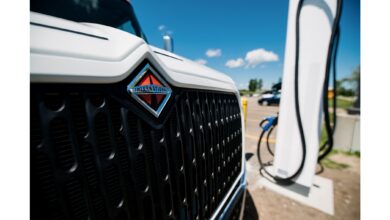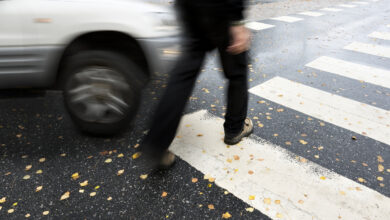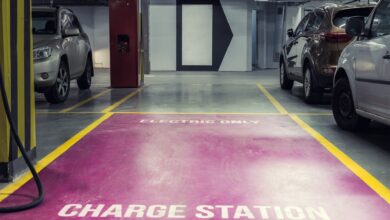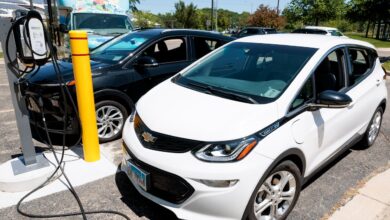EU slaps extra tariffs on Chinese EVs
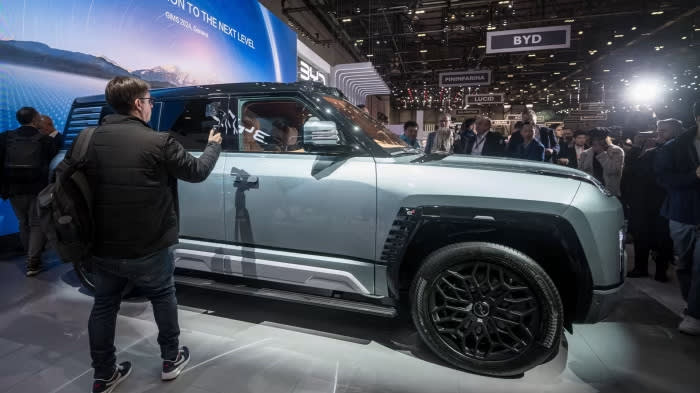
This article is an onsite version of our FirstFT newsletter. Subscribers can sign up to our Asia, Europe/Africa or Americas edition to get the newsletter delivered every weekday morning. Explore all of our newsletters here
Good morning. In today’s newsletter we’re covering:
-
China-Philippines tensions in the South China Sea
-
An FT investigation finds Ukrainian children on Russian adoption sites
-
The 28-year-old rightwinger gunning for France’s premiership
But first, the EU hit Chinese electric vehicles with tariffs of up to 48 per cent yesterday, ignoring German government warnings that the move risks starting a costly trade war with Beijing.
The European Commission told carmakers that it would provisionally apply duties of between 17 and 38 per cent on top of the existing 10 per cent on all Chinese EVs.
Some carmakers, including China’s BYD, the world’s largest electric-vehicle manufacturer, will be hit with additional individual tariffs of up to 20 per cent.
Beijing said it was “highly concerned and strongly dissatisfied” with the “ill-informed and lawless” EU action. China is the bloc’s largest trading partner and exported €10bn of electric cars to the EU in 2023.
Now, many EU carmakers fear China might respond in kind or even block them from its market.
And here’s what I’m keeping tabs on today:
-
Economic data: Australia publishes jobs figures for May. The US reports producer prices for last month, and EU industrial production figures for April are due.
-
Monetary policy: Taiwan’s central bank announces its rate decision. The Bank of Japan meets ahead of its monetary policy decision on Friday, when it is widely expected to keep its policy rate unchanged.
-
China: Premier Li Qiang begins a week-long trip that will take him to New Zealand, Australia and Malaysia.
-
Tesla annual meeting: Elon Musk’s future at the company may be at stake when shareholders vote on whether to restore a mammoth pay package for the electric-car maker’s chief executive.
-
G7 summit: Leaders of member nations plus the presidents of the European Council and the European Commission will attend the gathering in Apulia, Italy.
Five more top stories
1. The Philippines faces an “existential” threat from Beijing in the contested South China Sea and will not back down from asserting its claims despite Chinese “bullying”, its defence secretary told the FT. Confrontations between Beijing and Manila in the resource-rich waters have escalated recently, sparking fears of a broader conflict in the region.
2. US Federal Reserve officials have signalled that they expect to cut interest rates just once this year, taking a hawkish stance on inflation as they held borrowing costs at a 23-year high. Updated forecasts yesterday marked a significant change from the Fed’s last “dot plot” in March, when officials signalled three cuts this year.
3. PwC’s India boss is lobbying for a seat on the Big Four firm’s global executive committee alongside his counterpart in China, arguing that the fast growth of its business and the rising importance of the Indian economy merit a position at the $53bn network’s top table. But some within the firm see Sanjeev Krishan’s move as a “problem”.
4. The US Treasury has unveiled tougher sanctions for foreign banks doing business with Moscow. Washington will now treat any foreign financial institution transacting with a sanctioned Russian entity as though it is working directly with the Kremlin’s military-industrial base. The move will increase the risk for financial institutions in other countries doing business with Russia — particularly China. Here’s why.
5. US Senator Marco Rubio has urged the UK government to investigate whether Shein, the Chinese fashion group planning to list in London, has used forced labour in its operations. Human rights groups say ethnic minorities are being used as forced labour in Shein’s cotton supply in the northwestern Chinese region of Xinjiang, which Shein has denied.
Visual investigation
Russia has put up for adoption Ukrainian children it abducted in the early months of its invasion, an FT investigation has found. Using image recognition tools, public records and interviews with Ukrainian officials and the children’s relatives, the FT identified and located four Ukrainian children on a Moscow-linked adoption website, including one under a false Russian identity.
We’re also reading . . .
-
France: Twenty-eight-year-old Jordan Bardella was plucked from relative obscurity by far-right leader Marine Le Pen and is now potentially on the brink of power.
-
Toyota: David Keohane explores whether the automaker’s legendary supply chain is a liability or an asset amid the rise of EVs.
-
Public health: A survey by the World Health Organization suggests that women could be more exposed than men to superbugs, because of a complex mix of factors, writes Anjana Ahuja.
Chart of the day
China’s consumer price growth was weaker than expected in May, while factory price deflation eased slightly. Although the latest data marked an improvement from previous months in which China flirted with deflation, yesterday’s release pointed to a mixed picture for the economy.
Take a break from the news
Move over, Margarita. This summer’s tequila cocktail is the Paloma: a cool glass of tequila, grapefruit soda, lime, salt and ice (no shaker required). Pile the ice high and garnish the drink with a fresh slice of pink grapefruit or lime, traditionally served in a tall highball.

Additional contributions from Sophie Spiegelberger, Tee Zhuo and Gordon Smith
